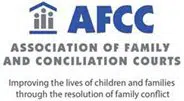

Child Support
Child Support Calculation
Divorcing parents each have a legal duty to provide housing, nourishment, clothing and financial support for their children’s wellbeing, according to their respective earning capacities and time children spend in each household. Maryland and the District of Columbia have established statutory Guidelines based on parental gross incomes (before 401k and other pre-tax deductions) for the amount of child support to be paid to the parent with primary residential custody. Investment earnings are also included in income for calculating child support. In households with combined parental incomes exceeding the statutory limit ($160,000 Maryland, $240,000 District of Columbia) deviations from the Guidelines are within the judge’s discretion.
Although child support calculated according to the Guidelines is presumed to be correct, a payor may argue for a reduction on the grounds that it would be unjust or inappropriate. (For example, payors’ income may be reduced by pre-existing child support payments for other children of the payor, or for other children in the payor’s household, resulting in reduced child support obligations.) Parents may agree to provide for additional support (e.g. private school tuition) or to provide college assistance, but Courts generally will not approve any parental agreement to pay less than the statutory Guidelines support (except, for example, where a parent continues to pay the family home mortgage).
Enforcement of Child Support Obligations
Although some payors prefer to pay child support directly to the custodial parent, to ensure payment and minimize friction many parents agree (or courts may order) that child support payments will be made through the County Office of Child Support Enforcement. This ensures that the payor is credited for payments actually made, and facilitates expeditious enforcement if the payor misses payments. The payor’s wages can be garnished to deduct child support on a current basis. Other child support enforcement mechanisms for arrearages include interception of tax refunds, garnishment of wages or bonuses, and revocation of driver’s licenses and passports which can interfere with a payor’s ability to earn income or travel internationally. It may be better to consent to wage garnishment before these more extreme sanctions are applied.
Modification of Child Support
Child support may be modified by the Court only due to a substantial change in circumstances (e.g. significant change in income due to a parent’s job loss or promotion, or a child requiring increased special needs services). Informal modification by the parties may not be enforceable, and leaves the payor exposed to claims by the custodial parent or Child Support Enforcement Authorities on behalf of the children. For clients who are significantly in arrears due to job loss, I recommend promptly filing a motion through a child support lawyer to modify child support to minimize prospective arrearages and avert contempt sanctions for nonpayment.












